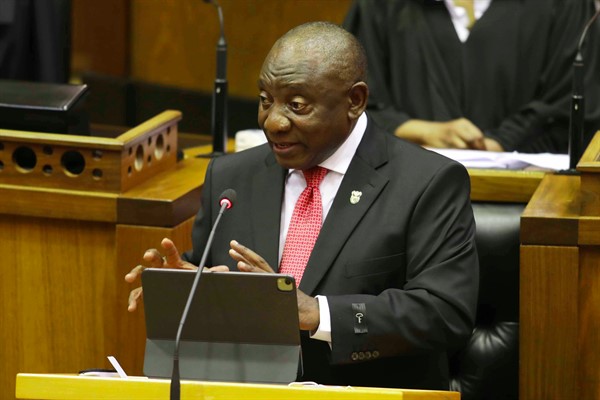Cyril Ramaphosa’s rise to the South African presidency in 2018 generated considerable optimism that his leadership would bring a more enlightened approach to policy, both domestic and foreign. His talk of a “new dawn” and his calls for a return to the values of Nelson Mandela represented an implicit repudiation of his two immediate predecessors, Thabo Mbeki and Jacob Zuma. In the case of the latter, Ramaphosa also promised an end to the rampant corruption and state capture that characterized Zuma’s decade in office.
Human rights organizations viewed Ramaphosa’s presidency as an opportunity for a policy reset, and they encouraged him to use his leadership—as well as South Africa’s position as a nonpermanent member of the United Nations Security Council in 2019-2020 and chair of the African Union in 2020—to revive Mandela’s commitment to the protection of human rights and the expansion of democracy. Under both Mbeki and Zuma, these ideals had been subordinated to other priorities, such as South-South solidarity, pan-African unity and the principles of sovereignty and non-interference in other states’ internal affairs.
Yet for those who put stock in Ramaphosa’s potential to promote liberal values at home and abroad, his years in office have thus far been disappointing. True, his government played a useful role during its U.N. Security Council term in shepherding through a resolution aimed at ending the scourge of sexual violence in armed conflicts. And Ramaphosa does not share Zuma’s enthusiasm for withdrawing South Africa from the International Criminal Court, an important mechanism of accountability in the global human rights regime. In fact, in June 2020, he told the National Executive Committee of the ruling African National Congress that the party must “consider a strategic retreat” from its position on withdrawing from the ICC. More generally, he has stressed South Africa’s official commitment to democratic rule and has condemned human rights violations across Africa.

